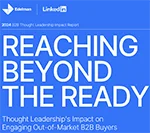 |
While a central component of thought leadership for B2B companies remains simply raising the general level of brand awareness with potential audiences, a new study from Edelman and LinkedIn finds that it is also being expected to play an increasingly important role in making that brand “powerful and attractive to buyers.”
“Reaching Beyond the Ready,” the sixth annual collaboration between Edelman and LinkedIn, takes a close look at how thought leadership impacts buying behaviors among B2B decision-makers and C-suite executives. It surveyed nearly 3,500 management-level pros to find out how thought leadership can take the next step beyond brand awareness.
One of the most important goals of effective thought leadership, the study finds, is causing business leaders to “rethink their challenges.” Giving potential clients a fresh perspective on what their needs are can stimulate their demand for the solutions a company can offer, with the potential of doing “far more than just create a favorable impression of your brand.”
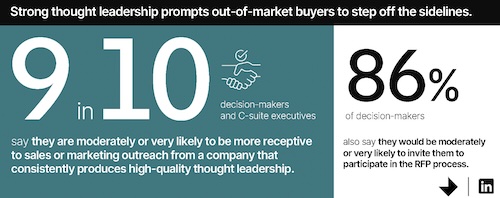 |
The appetite for thought leadership is significant, the study finds. More than half of decision-makers (52 percent) and C-level executives (54 percent) said they spend an hour or more on average per week reading thought-leadership content.
That content is deemed more trustworthy than general marketing materials. Almost three-quarters (73 percent) of respondents said they think an organization’s thought-leadership content is a more trustworthy basis for judging its capabilities and competencies than its marketing materials and product sheets are. Plus, seven out of 10 respondents had a better opinion of a company that they thought of as producing high-quality thought leadership.
As regards the sales value of thought leadership, 75 percent of decision-makers and C-suite executives noted that a piece of thought leadership has led to them to research a product or service they were not previously considering, while 54 percent said that a general high-level of thought leadership from a company would encourage them to research that company’s offers or capabilities.
But just as positive thought leadership can reap rewards, content that’s not up to snuff can do a fair amount of damage. Seven out of 10 (70 percent) C-suite leaders said that a piece of thought leadership had “at least occasionally led them to question whether they should continue working with an existing supplier.” More than half also commented that substandard thought leadership could lead them to seek out suppliers “that had a better understanding of the challenges their organization was facing.”
Respondents also cited the properties they look for in effective thought leadership. One key element was that content should offer “insights into practical business challenges.” It should also use “robust data, research and customer stories" and have “executive buy-in and ownership.”
In general, the study authors write, “B2B companies need to find ways to make buyers reconsider their challenges as a way to general demand. Though leadership can give them an advantage.”
The Edelman/LinkedIn survey was conducted in December 2023.


 Consumers who once demanded convenience now require consistent, multi-channel experiences that cater to them at every point. Brands must have a clear, audience-appropriate, and channel-specific voice across all platforms.
Consumers who once demanded convenience now require consistent, multi-channel experiences that cater to them at every point. Brands must have a clear, audience-appropriate, and channel-specific voice across all platforms. Employees at U.S. companies are experiencing high levels of burnout, but managers are lagging behind when it comes to their awareness of the problem
Employees at U.S. companies are experiencing high levels of burnout, but managers are lagging behind when it comes to their awareness of the problem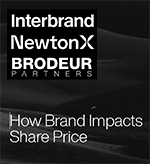 Brand has a powerful effect on a company’s valuation, but the level of brand understanding in the investment community leaves a lot to be desired, according to a new study from Brodeur Partners, Interbrand and NewtonX.
Brand has a powerful effect on a company’s valuation, but the level of brand understanding in the investment community leaves a lot to be desired, according to a new study from Brodeur Partners, Interbrand and NewtonX.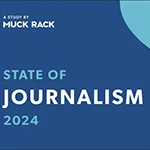 AI may still be viewed with a wary eye by most media pros, but its use is growing, according to a new study from Muck Rack.
AI may still be viewed with a wary eye by most media pros, but its use is growing, according to a new study from Muck Rack.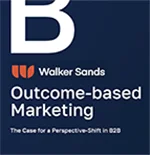 A new study from Walker Sands says that some marketers have been putting the cart before the horse when it comes to the relationship between marketing channels and business outcomes.
A new study from Walker Sands says that some marketers have been putting the cart before the horse when it comes to the relationship between marketing channels and business outcomes.


 Have a comment? Send it to
Have a comment? Send it to 
No comments have been submitted for this story yet.